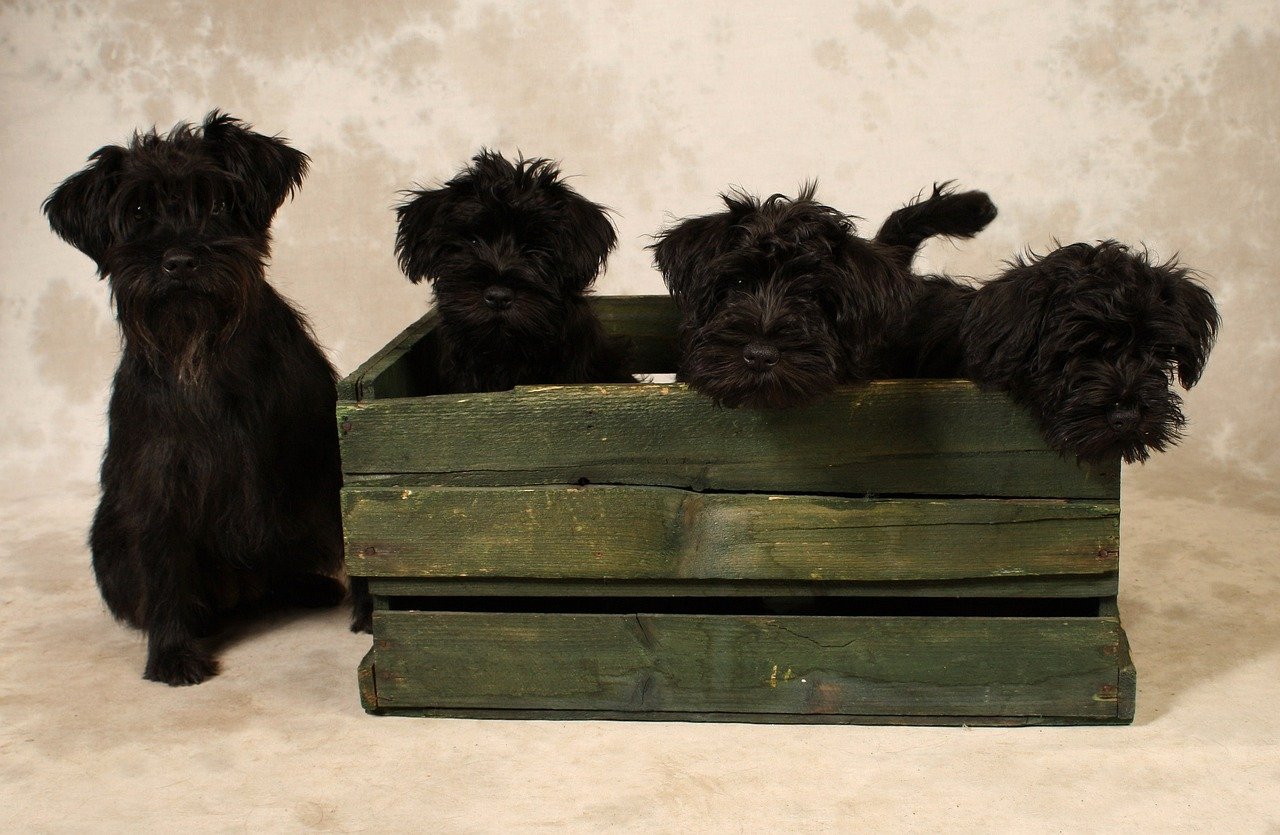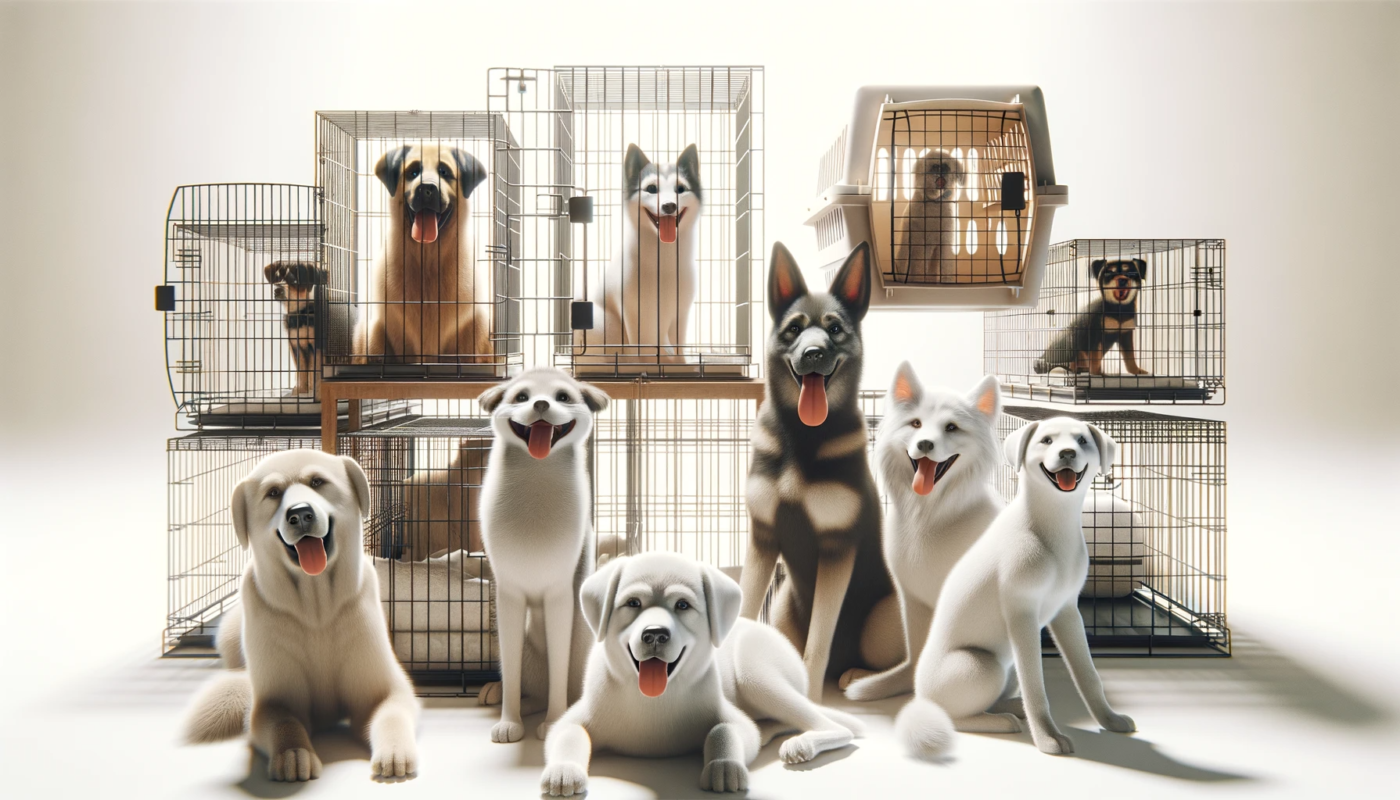
How to Find the Right Small Dog Crate Size for Your Furry Friend
If you’re a proud owner of a small dog, you’ll know how important it is to provide them with a comfortable and safe space. That’s why finding the right small dog crate size is essential. In this article, we’ll guide you through the process of selecting the perfect crate size for your furry friend, ensuring they have a cozy retreat that suits their specific needs and preferences. From measuring your dog’s dimensions to considering their behavior, we’ve got you covered with practical tips and advice. So, let’s get started on finding the perfect small dog crate size for your beloved canine companion!
Find products like these on Amazon!
Determining the Ideal Crate Size
Crate size is an important consideration when it comes to providing a comfortable living space for your dog. To determine the ideal crate size, there are several factors that you need to take into account.
Measure Your Dog
The first step in finding the right small dog crate size is to measure your furry friend. Measure your dog from the tip of their nose to the base of their tail to determine their length. Measure from the ground to the top of their head to determine their height. Lastly, measure from shoulder to shoulder to determine their width. These measurements will serve as a baseline for selecting the appropriate crate size.
Consider the Adult Size
Another factor to consider is the adult size of your dog. While puppies may be small now, they will eventually grow into their full size. It’s important to take this into account when choosing a crate so that your dog has enough space to comfortably move around as they grow.
Measure the Length, Height, and Width
Once you have the measurements of your dog and have considered their adult size, it’s time to measure the length, height, and width of the crate. Make sure to choose a crate that allows your dog to stretch out, lie down, stand comfortably, and turn around without any restrictions.
Choosing the Right Height
The height of the crate is an important factor to consider when selecting the ideal size for your small dog.
Allow Enough Space for Standing
When your dog is inside the crate, they should have enough headroom to be able to stand comfortably without bumping their head on the top. This will ensure that they can move around freely and maintain good posture while inside the crate.
Consider the Breed’s Typical Height
Different dog breeds have varying heights, so it’s important to consider your specific breed when choosing the height of the crate. Research the typical height of your dog’s breed and select a crate that allows them to stand up fully without any discomfort.

This image is property of pixabay.com.
Find products like these on Amazon!
Selecting the Proper Length
The length of the crate is another crucial factor to consider when finding the right size for your small dog.
Allow for Stretching, Lying Down, and Standing
Your dog should be able to stretch out fully, lie down comfortably, and stand up without any restrictions inside the crate. Make sure to select a crate that provides enough length to accommodate these natural movements and positions.
Ensure Enough Space for the Dog’s Length
Take into account your dog’s length when choosing the crate size. The crate should be long enough to accommodate your dog’s full body length, from the tip of their nose to the base of their tail, with a bit of extra room for comfort.
Considering the Appropriate Width
The width of the crate is also essential for your dog’s comfort and freedom of movement.
Allow for Turning and Changing Positions
Your dog should be able to turn around easily and change positions inside the crate without any difficulty. Consider your dog’s width and select a crate that provides enough space for them to move around comfortably.
Ensure Enough Room for the Dog’s Width
Take into account your dog’s shoulder width when choosing the crate size. The crate should be wide enough to accommodate your dog’s width, allowing them to comfortably change positions and lie down with their shoulders not touching the sides of the crate.

This image is property of pixabay.com.
Taking Your Dog’s Activity Level into Account
The activity level of your dog is an important factor to consider when selecting the right crate size.
Consider a Slightly Larger Crate for Active Dogs
If your dog is highly active and loves to move around, it might be beneficial to consider a slightly larger crate. This will provide them with more space to burn off excess energy and prevent them from feeling cramped or restricted.
Factor in Your Dog’s Comfort and Rest
On the other hand, if your dog is more laid-back and enjoys lounging and resting, a crate that is just the right size to accommodate their natural movements will be suitable. It’s important to strike a balance between providing enough space for activity and ensuring your dog feels secure and cozy.
Weighing Your Dog’s Safety and Security
When choosing a crate size for your small dog, it’s crucial to prioritize their safety and security.
Ensure the Crate is Sturdy and Escape-Proof
Select a crate that is sturdy and well-built to ensure it can withstand your dog’s movements and prevent any accidental escapes. Check for secure latches and locks to keep your dog safely contained within the crate.
Provide Enough Ventilation for Your Dog’s Safety
Proper ventilation is also vital for your dog’s safety and well-being. Ensure that the crate has adequate openings or mesh panels to allow for proper airflow, preventing your dog from overheating or feeling suffocated.

This image is property of pixabay.com.
Looking at the Materials and Design
Consider the materials and design of the crate to ensure it meets your needs and preferences.
Consider the Crate’s Durability and Longevity
Choose a crate that is made from durable materials, such as heavy-duty plastic or metal, to ensure it can withstand everyday wear and tear. This will also ensure longevity, providing your dog with a safe and comfortable space for years to come.
Choose a Design that Suits Your Style and Home Decor
While functionality is important, it’s also worth considering the design of the crate. Look for a design that complements your style and home decor, ensuring that the crate seamlessly blends into your living space.
Considering Your Dog’s Age and Future Growth
Your dog’s age and future growth should also be taken into consideration when selecting a crate size.
Factor in Your Dog’s Growth Rate
Puppies grow at a rapid rate, so it’s essential to choose a crate that can accommodate their current size as well as their anticipated future growth. Consider selecting a crate with adjustable dividers that can be resized as your puppy grows to provide them with ample space at every stage of their development.
Consider a Crate with Adjustable Dividers
A crate with adjustable dividers allows you to customize the size of the living space as your dog grows. This ensures that they have a snug and secure area when they are small, and enough room to move around as they get bigger.
Using Size Guides and Recommendations
Size guides and recommendations provided by breed-specific resources, pet experts, or veterinarians can be valuable references when determining the right crate size for your small dog.
Refer to Breed-Specific Size Guides
Different dog breeds have different characteristics and sizes. Many breed-specific resources provide size guides that recommend appropriate crate sizes based on the breed. This can serve as a helpful starting point when choosing a crate size for your furry friend.
Seek Advice from Pet Experts or Veterinarians
If you’re still unsure about the appropriate crate size for your small dog, don’t hesitate to seek advice from pet experts or veterinarians. They have the knowledge and experience to guide you in selecting the best crate size based on your dog’s specific needs and characteristics.
Considering Your Dog’s Behavior and Preferences
Your dog’s behavior and personal preferences should also be taken into account when choosing a crate size.
Take into Account Your Dog’s Anxiety or Comfort Needs
If your dog has anxiety or comfort issues, they may feel more secure in a slightly smaller crate that provides a cozy and den-like environment. Take into consideration your dog’s specific needs and tendencies when selecting the crate size.
Consider Your Dog’s Preference for Coziness or Roominess
Some dogs prefer a cozy and snug space, while others may prefer more room to stretch out. Observe your dog’s behavior and sleeping habits to determine whether they would appreciate a crate that is slightly more compact or one that provides more roominess.
Finding the right small dog crate size for your furry friend requires careful consideration of their measurements, breed characteristics, activity level, safety needs, and personal preferences. By taking all these factors into account and following the guidelines outlined in this article, you can ensure that your dog has a comfortable and secure living space that meets all their specific needs.
Find products like these on Amazon!
- Determining the Ideal Crate Size
- Choosing the Right Height
- Selecting the Proper Length
- Considering the Appropriate Width
- Taking Your Dog’s Activity Level into Account
- Weighing Your Dog’s Safety and Security
- Looking at the Materials and Design
- Considering Your Dog’s Age and Future Growth
- Using Size Guides and Recommendations
- Considering Your Dog’s Behavior and Preferences




-
-
2 weeks
Tagged Choosing, cleaning, dog crate, Pet care